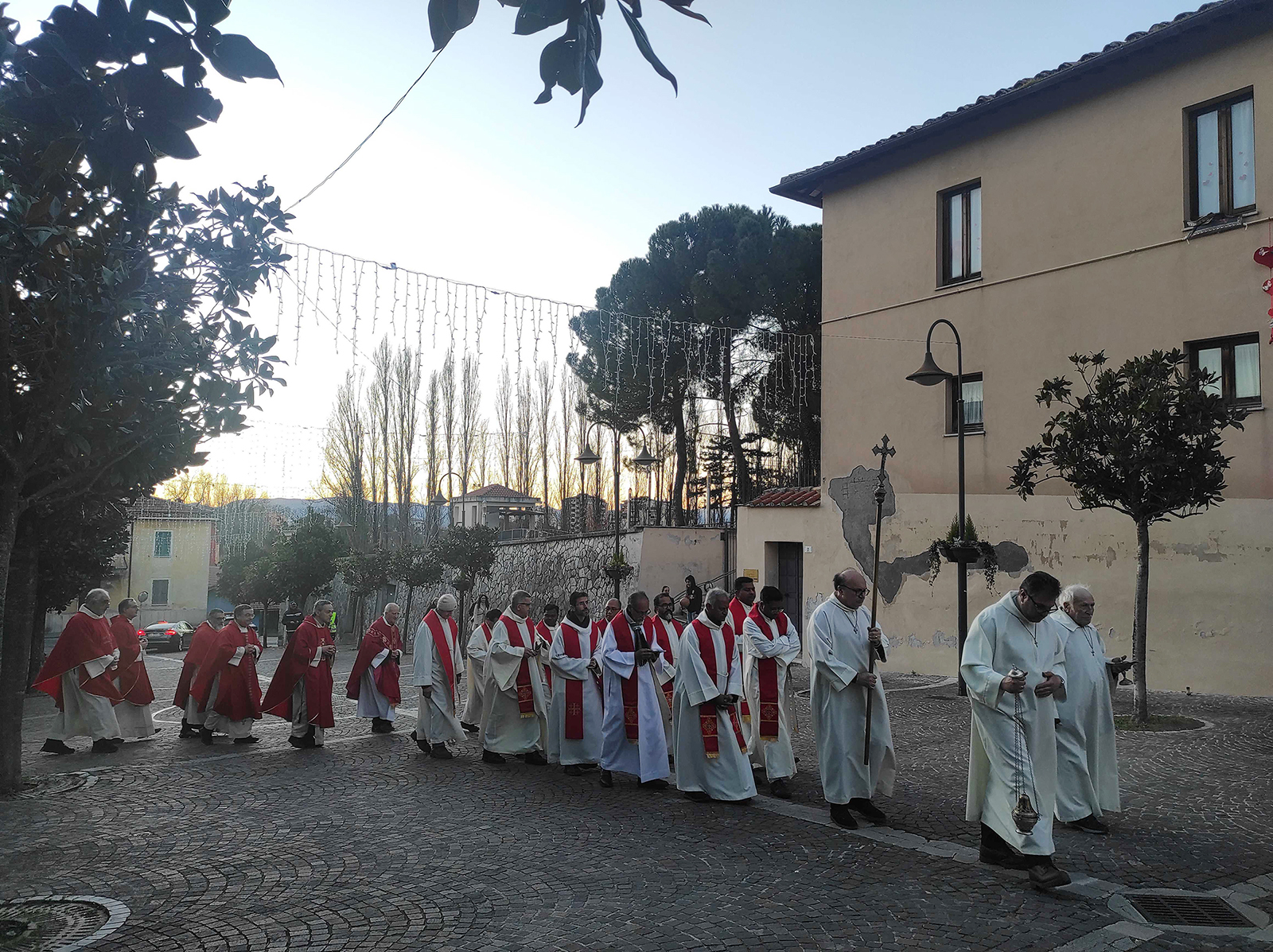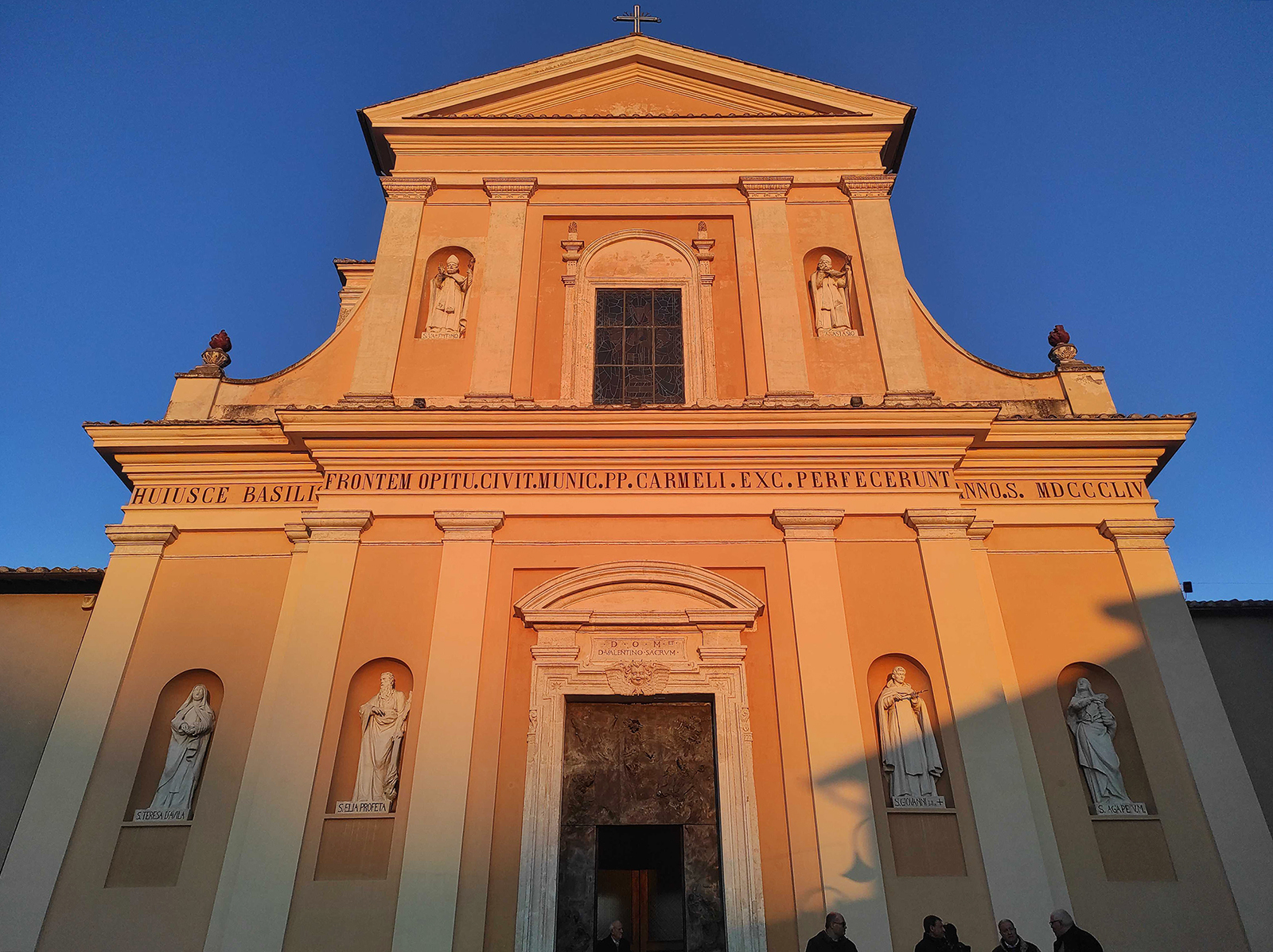TERNI, Italy (RNS) — This Wednesday marked a peculiar challenge for practicing Catholics. Valentine’s Day, characterized by candlelit dinners and boxed chocolates, and Ash Wednesday, the start of Lenten privations, collide on Feb. 14 this year, for an odd mashup of romance and abstinence.
The U.S. Conference of Catholic Bishops has made it clear there will be no dispensation from the requirement to fast and abstain from meat on lovers’ day. Many bishops recommended that faithful have their romantic dates a day earlier, which also happened to coincide with the excesses and celebrations of Mardi Gras.
That is what they decided to do in the city of Terni, where Valentine’s Day is more important than Christmas. It’s here, in the Umbria region not far from Rome, that the remains of St. Valentine, the third-century saint whose feast inspired the international day for love, is buried in the Basilica of St. Valentine.
The city is adorned with hearts and cherubs for the feast, and couples from all over the world gather to walk its streets and indulge in romance-themed celebrations. Posters of the saint, depicted with scarlet gloves and golden robes, are plastered on every corner.
The local church learned from the mistakes of 2018, the last time Ash Wednesday and Valentine’s Day occurred on the same day. That year, the basilica celebrated Mass for the feast of St. Valentine instead of the usual Mass for Ash Wednesday, and it caused quite a stir among faithful, according to the current parish priest, the Rev. George Johnson Perumittath.

Clergy process toward the Basilica of St. Valentine in Terni, Italy, to celebrate the St. Valentine’s Day Mass on Feb. 13, 2024. (RNS photo/Claire Giangravé)
“Those who regularly come to Mass know that Ash Wednesday is more important because it’s the beginning of a journey for the entire church and not just a local church here in a corner of the Earth in Terni,” he told Religion News Service after the St. Valentine’s Day Mass on Tuesday (Feb. 13).
After the Mass, a couple renewed their vows before the congregation and the town elected its St. Valentine ambassador to the world.
Arnaldo Casali, who works as a cultural manager for the parish and is an expert on the life and works of St. Valentine, told RNS that changing the date of the celebration diluted the number of people present at Mass. “Usually, the church is so packed that people listen to the service from the steps outside,” he said.
Casali, who is also a member of the John Paul II Pontifical Theological Institute for Marriage and Family Sciences, has written two books on St. Valentine. Ten years ago, on Valentine’s Day, he presented his book “Valentine: The Secret of the Saint in Love,” to Pope Francis at the Vatican, only to be surprised by the fact that the Argentine pontiff had no idea the international day for love and relationships was inspired by an ancient Catholic saint.
This is not surprising, Casali said, since in the Americas the feast of the Italian saint has been widely substituted with a day for heart-shaped boxes and romantic dates. The connection between St. Valentine and love comes from a legend recounting how the saint helped a bickering couple make peace by gifting them a red rose.

The Basilica of St. Valentine in Terni, Italy. (RNS photo/Claire Giangravé)
The English poet Geoffrey Chaucer was the first known to make the connection, when in the 1380s he wrote about doves finding their spouse on the feast of St. Valentine. In 1969, the saint of love was removed from the General Roman Calendar and Feb. 14 became the feast of Sts. Cyril and Methodius, but the connection with love remained.
On the façade of the basilica in Terni, a glass window shows the saint between two lovers, and couples today flock here for the Mass in his honor. One couple, who met on St. Valentine’s Day 45 years ago, came to pay their respects for the saint who brought them together. Another couple, married for 62 years, has decided to postpone their Valentine’s date in exchange for fasting and abstinence.
A family hailing from the southern region of Calabria found out last minute that their plans to celebrate Valentine’s Day by eating a plate of carbonara pasta, which is made with eggs and bacon, clashed with the requirement to fast and abstain from meat on Ash Wednesday.
“There will be no carbonara this year, I guess,” one family member said. “We might have to do something different. Fish, I guess.”



